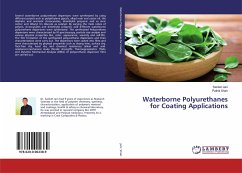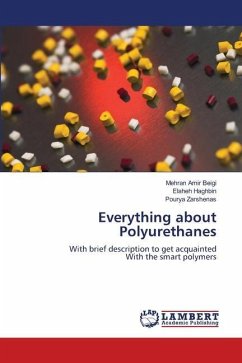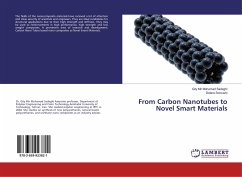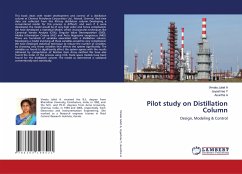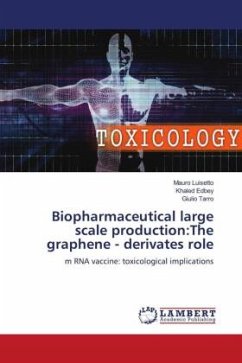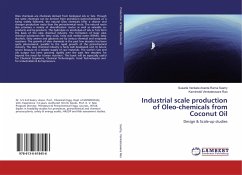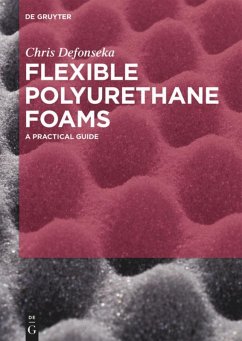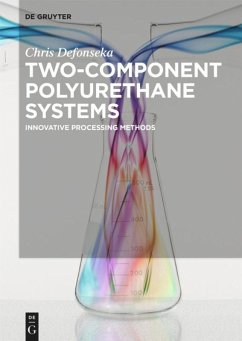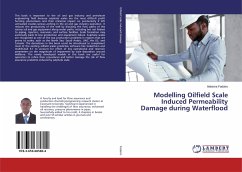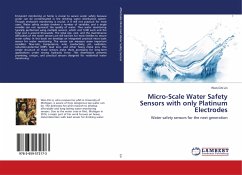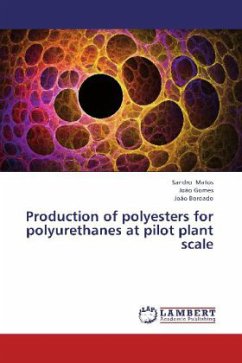
Production of polyesters for polyurethanes at pilot plant scale
Versandkostenfrei!
Versandfertig in 6-10 Tagen
32,99 €
inkl. MwSt.

PAYBACK Punkte
16 °P sammeln!
Understanding variables that affect production of unsaturated polyester polyols based on dimer fatty acids Unidyme®14 and Unidyme®18 with ethylene glycol and 1,4-butane diol that were synthesized via the polycondensation reaction mechanism. We studied a fast way to determine molecular weight, which usually takes a lot of time and is not very economical and ecological. Among the experimental controlled parameters for each polyol synthesis a special attention was paid to these products viscosity, color, molecular weight, acid and hydroxyl value parameters of extremely commercial importance. Th...
Understanding variables that affect production of unsaturated polyester polyols based on dimer fatty acids Unidyme®14 and Unidyme®18 with ethylene glycol and 1,4-butane diol that were synthesized via the polycondensation reaction mechanism. We studied a fast way to determine molecular weight, which usually takes a lot of time and is not very economical and ecological. Among the experimental controlled parameters for each polyol synthesis a special attention was paid to these products viscosity, color, molecular weight, acid and hydroxyl value parameters of extremely commercial importance. The Unidyme®14 dimer fatty acid, having a dimer acid percentage of 94%, induces the polyols based on them to be products of relatively commercial relevance. As for the Unidyme® 18 dimmer fatty acid, its dimer percentage is 81,8%. Unidyme®18 its based polyols commercial interest is specially relevant not only when a lower cost is a relevant factor, but also when its trimmer content is important to confer non-crystallinity properties to the final end product. Also, flexible polyurethane foams were developed (1250-2000 molecular weight) polyol polyester and tested regarding oil absorption capacity.



